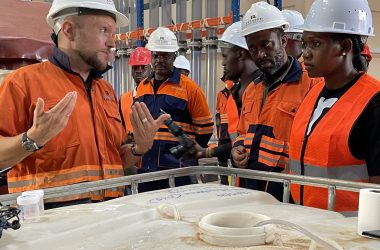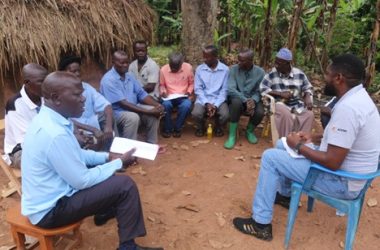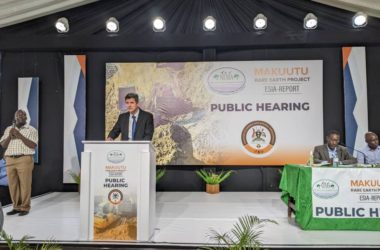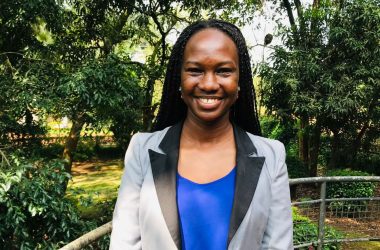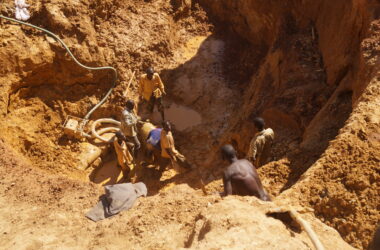This past August, I was fortunate to be part of a regional discussion on East Africa’s budding extractives sector that was convened by Oxfam in Nairobi, Kenya.
The event’s timing and scope stemmed from the different developments being undertaken by partner states in the East African Region, either individually or jointly, to exploit their oil, gas and mineral resources. Uganda has its crude oil refinery and pipeline; Tanzania harbours plans of exporting its natural gas to the Region; Kenya is fast-tracking its crude oil production and also pushing ahead with the LAPSSET project. It is indeed the right time to share knowledge and understand what these developments mean on a national, regional, continental and global level.
Many such discussions have been held across the Region, and I have participated in a number of them, but for me, this one was different simply because it was more solutions oriented. The agenda was crafted in such a way that the participants, who included civil society, high level representation from the Kenyan Government, media and grassroots communities from resource rich areas, contributed solutions to the challenges inhibiting the prosperity of the extractives sector in the East African Region.
Shaping a new, people-centred narrative
Africa is rising. Africa is ready for business. East Africa is the next oil and mining frontier.
These narratives have largely been shaped by the developed world and, to put it politely, are majorly aimed at exploiting the continent’s natural resources to the benefit of the developed world, with some little crumbs for the host countries here and there depending on the politics at play at the time.
Many factors have been advanced for this renewed interest in Africa’s resources. A good number of those point towards an unstoppable global population boom coupled with technological advancements that have increased demand for natural resources by manufacturers in the developed world. Technology has also created newer techniques of resource exploitation that make previously inaccessible reserves easier to exploit and those earlier thought to be commercially inviable, profitable. Underlying all this hassle is one fact though: The developed world is running out of natural resources to feed their innovations and must now turn to virgin fields in Africa to supply them. The weak governance in many of the targeted African countries is an added bonus because deals can be made without much scrutiny.
How then, as East Africans can we reverse that narrative? How can we change that story so that the resources existing beneath our feet can in effect cause the much needed economic and social transformation of our society? It has happened in Europe, why can’t it happen here.
Well, the answer can be found in one word: Governance.
Is it a resource curse? Or just a governance one?
The extractives sector can be deceptive – a somewhat double edged sword. While the discovery of new or additional petroleum and mineral resources is welcomed with jubilation and wild expectations from the governments and citizens of that ‘fortunate’ country, history has shown that the excitement is often quickly followed by despair and regret.
Many have described it as a resource curse, i.e. resource rich countries end up worse off than they were before finding those resources.
But, as one key note presenter at the Oxfam meeting put it, the resource curse is actually just an outcome of a “governance curse” i.e. many governments across Africa are poorly governed and the extractives sector is just a victim, like all other sectors that comprise an African economy.
Yet, unlike those other sectors, the extractives sector is unique. The resources are finite and will run out some day- and not in centuries, but a couple of decades or a little more. That is the stark reality. We don’t have that much time.
Take Uganda, for instance, where it is estimated that the country’s 6.5 billion barrels of oil discovered so far can last thirty years at the planned production levels. If we consider just the discoveries to date with a planned commencement date for crude oil production sometime in 2022, it means that Uganda will have pumped its last drop of crude oil by 2050. Many readers of this article will be in their seventies, a few in their eighties and even fewer in their nineties by that time; their children in their thirties or forties, and grandchildren probably in secondary school or university. So what does it mean for these two generations after us, and those after them, if we allow the country’s natural resources to be squandered now through reckless political decisions?
The end is near
Luckily, we do not have to wait that long to see how Uganda’s economy will respond post-oil era. There are other oil producing countries around the globe whose production expiry dates are much closer than Uganda’s. Angola for example, according to a 2016 industry publication, is expected to run out of oil in 12 years’ time at current production levels. Yes, by 2030! Colombia, where oil contributes over 20% of the country’s exports may run out of oil by 2022, going by current production levels; while Norway has just six more years of oil production at current production levels. The same applies for minerals. For example, heavyweight Australia will run out of diamonds in less than eight years at current rates of production, unless new greenfields are found.
Of the four countries mentioned above, Norway is probably losing the least sleep over its impending post-oil era because it foresaw the end and invested accordingly. Its sovereign oil fund alone, the largest in the world, has assets in excess of one trillion dollars. By May 2018, the Fund was worth about $195,000 per Norwegian citizen.
So what then, can East Africa do to ultimately end up in a Norway-like position in the next forty or fifty years when all its wells and mines have possibly dried up, and not a Nigeria or Angola-like situation?
Good governance: That thin line between a blessing and a curse.
Gone should be the days when governments question the mandate of Civil Society in monitoring transparency and accountability. The persistent accusation that Civil Society are enemies of progress working for interests of foreign powers is becoming not only stale but ever so untrue. With all the cases of corruption and greed across the Region, one can confidently conclude that it is the self-seeking government officials that tend to promote non-nationalist interests by mortgaging their countries’ resources in bogus contracts and long term agreements in pursuit of a quick buck. Those are the real economic saboteurs, not Civil Society and other activists.
Civil society and the general public should be allowed room to challenge governments on open contracting, implementation of local content policies, revenue management, environmental management, restoration and other issues.
One good example of this has been in Kenya’s Turkana Region where, largely due to the numerous enlightenment efforts by local campaigner Friends of Lake Turkana, the communities have forced government and the international oil company operating there onto the drawing table to negotiate with them as partners, not mere recipients of good will. It is not that the Turkana community is against development, no! They just want it to be done right.
Someone has to be consistently engaging the political leadership directly and leading the way for others, including communities at the grassroots level to demand for these things.
To do this effectively, civil society, the media and the public should pick more interest in the management of the country’s extractive resources. A good, inexpensive start is enrolling for the various short courses being offered by different organisations in Uganda and the Region. So if you are a journalist for example, get interested in attending one of ACME’s trainings, if you are intending to be a practitioner get interested in the recently-commenced Columbia Institute of Sustainable Development/GLISS course for East Africa or the fully sponsored Australia Awards Annual Short Courses. You could even pick from a wide collection of online courses being offered by reputable organisations like Total, NRGI, Columbia University and many others. Start somewhere. If you are a researcher there are many online resources you can turn to such as the Platform for Extractive Industries Information (PLEXII), Oil in Uganda, Deep Earth, Earth Finds, etc. It is important that as many people as possible can talk intelligibly about the sector, shape debate and challenge government and the companies with proven workable alternatives.
It is through such exposure that we can effectively pose difficult questions to government and elicit the right reactions from them. Let’s get started. We don’t have much time.
Programs Director
Africa Centre for Energy and Mineral Policy (ACEMP)


